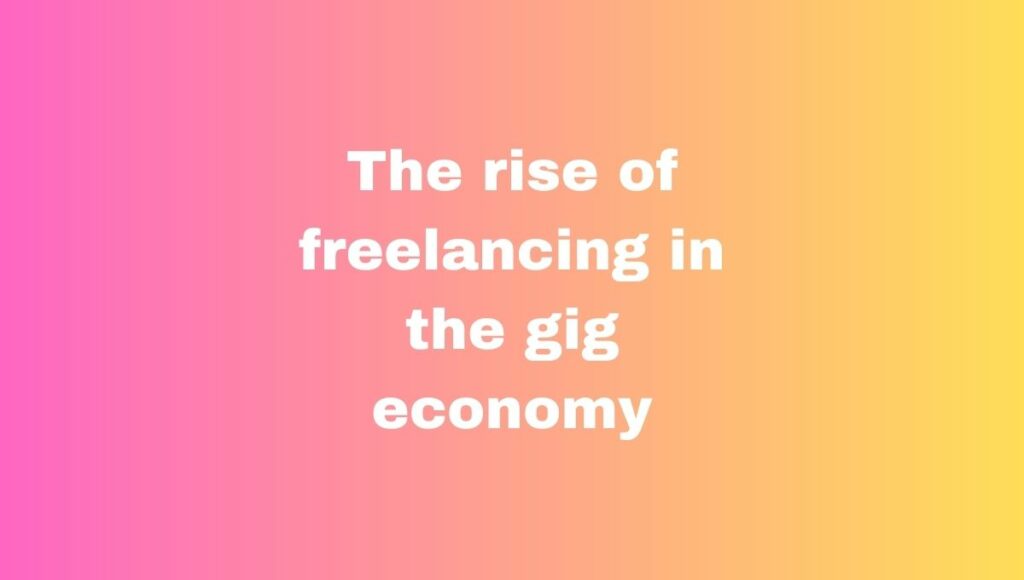what is gig in freelancing
The number of freelancers has significantly increased in the gig economy in recent years. Those looking for more freedom and control over their job are increasingly choosing to freelance. In this blog article, we’ll look at the variables influencing the expansion of freelancing in the gig economy.
What does “gig economy” mean?
The phrase “gig economy” describes a labor market where corporations engage employees on a temporary basis and temporary or freelance employment is common. This kind of work is frequently project-based and can be carried either on-site or remotely.
Why is the gig economy seeing an increase in freelancing?
Technological advancements:
Freelancers may now work from any location with an internet connection thanks to the internet and developments in digital communication technologies. Because of this, freelancers now have a wide range of chances to work with customers in many nations and time zones. Additionally, online marketplaces like Upwork, Fiverr, and Freelancer have made it simpler for freelancers to connect with clients and find employment. These platforms offer freelancers a location to sell their services, submit bids for jobs, and interact with clients.
Increased demand for specialized skills:
The need for people with specialised skills and knowledge has grown as the economy gets more specialised. Since they frequently possess specialised knowledge that is in great demand, freelancers can charge more for their services. The necessity for firms to remain competitive in a market that is changing quickly is what is driving this need. Businesses that rely on freelancers for specialised knowledge and abilities may adapt and keep on top of the latest trends.
Desire for flexibility:
Freelancing appeals to many individuals since it provides more flexibility than regular work. It is simpler for freelancers to juggle work with additional responsibilities like caring for children or following other hobbies since they may select when, where, and how much they work. Freelancers can work with a range of customers and take on many tasks simultaneously because to their freedom.
Access to a global market:
Working with customers worldwide has become simpler for freelancers thanks to the internet. Because of this, there are now more options for freelancers to get employment on a worldwide scale. Freelancers have the opportunity to work with customers from many nations and cultures, acquiring priceless experience and being exposed to fresh viewpoints.
Changing attitudes towards work:
In recent years, attitudes about work have evolved as more individuals look for more fulfilling employment that fits with their beliefs and interests. As freelancers have more control over the kind of work they perform and the clients they work with, they may supply this sort of job. Freelancers have the option to select jobs that fit with their interests and values, which makes them feel happier and more invested in their work.
Despite the advantages of freelancing, there are a few disadvantages to take into account. Freelancers have to contend with variable pay, a lack of job stability, and office chores like billing and accountancy. Additionally, independent contractors are in charge of their own benefits, including health insurance and retirement funds. However, for many people, the advantages of freelancing outweigh the difficulties, and it has grown to be a common choice for those looking for more freedom and control over their work.











